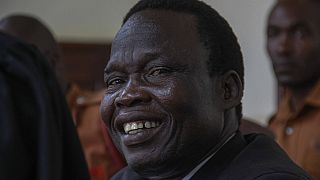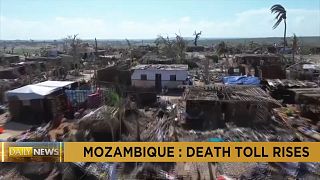The Morning Call
In November last year on the Hi-Tech segment, we talked about some polytechnic students in Ghana’s second largest city of Kumasi, who technologically altered car engines to run on electricity.
In June, we broke the story about a Ghanaian university’s launch of the country’s first satellite into space.
The technological achievements didn’t end there.
Last week, the Kwame Nkrumah University of Science and Technology in Kumasi, unveiled a solar-powered electric 4×4 pick-up vehicle known as “aCar”.
It was inaugurated by its Chancellor and King of the Ashanti Kingdom, Otumfuo Osei Tutu II who gave the environmentally friendly automobile a test drive during the university’s congregation.
It was jointly developed by the university’s Departments of Mechanical Engineering and Physics, in partnership with the Technical University of Munich in Germany.
According to the Vice Chancellor, Professor Kwasi Obiri-Danso, the prototype was developed as part of a project to explore the mobility needs of the country.
He said the aCar is a response to local needs, using affordable, environmentally friendly and locally available materials.
The vehicle is still being tested and fine-tuned to bring it up to standard.
Other dignitaries at the university’s congregation were taken through the vehicle’s system that combines electric power with solar energy.
The Kwame Nkrumah University of Science and Technology has other inventions including an open-space fire detector, solar-powered traffic lights and drones to support the nation’s development process.
Ghana’s radio astronomy success
Ghana and South Africa have announced the successful conversion of a communications antenna into a functioning radio telescope linking the two countries.
The conversion of Ghana’s redundant 32-meter telecommunications antenna at the Ghana Satellite Earth Station at Kuntunse, in the Greater Accra Region into an astronomical radio telescope, makes the country the first in Africa among nine others to do so.
The upgrade project started in 2011 in collaboration with South Africa to create the African astronomical radio network as an extension of the global network.
The new astronomical radio telescope has already made some important observations.
This is the first phase of the project. The second phase will be the integration of the network to the African network and then across the continent.
A seven-member Ghanaian team has undergone training in South Africa and has been trained in all aspects of the project, including the operation of the telescope.
Watch this edition of Hi-Tech on The Morning Call with Ismail Akwei.





![Africanews celebrates fifth anniversary [Night Shift]](https://static.euronews.com/articles/stories/05/57/72/74/320x180_cmsv2_6b1e7837-a917-526b-b3b4-4582a3f8bcac-5577274.jpg)
![Africanews celebrates fifth anniversary [Morning Call]](https://static.euronews.com/articles/stories/05/57/72/70/320x180_cmsv2_a6c857d4-80a3-510a-88e6-f060ea8d9ee9-5577270.jpg)






01:33
In 2024, robots exhibited greater ingenuity, utility
Go to video
Top Google searches of 2024: Elections, Copa América, and more
00:41
Ghana: John Mahama wins, the ruling party candidate Bawumia admits defeat
01:40
Vote counting underway in Ghana in tight presidential race
01:45
Polls open in general election in Ghana
01:32
The economy as a key concern for voters in Ghana's Presidential election